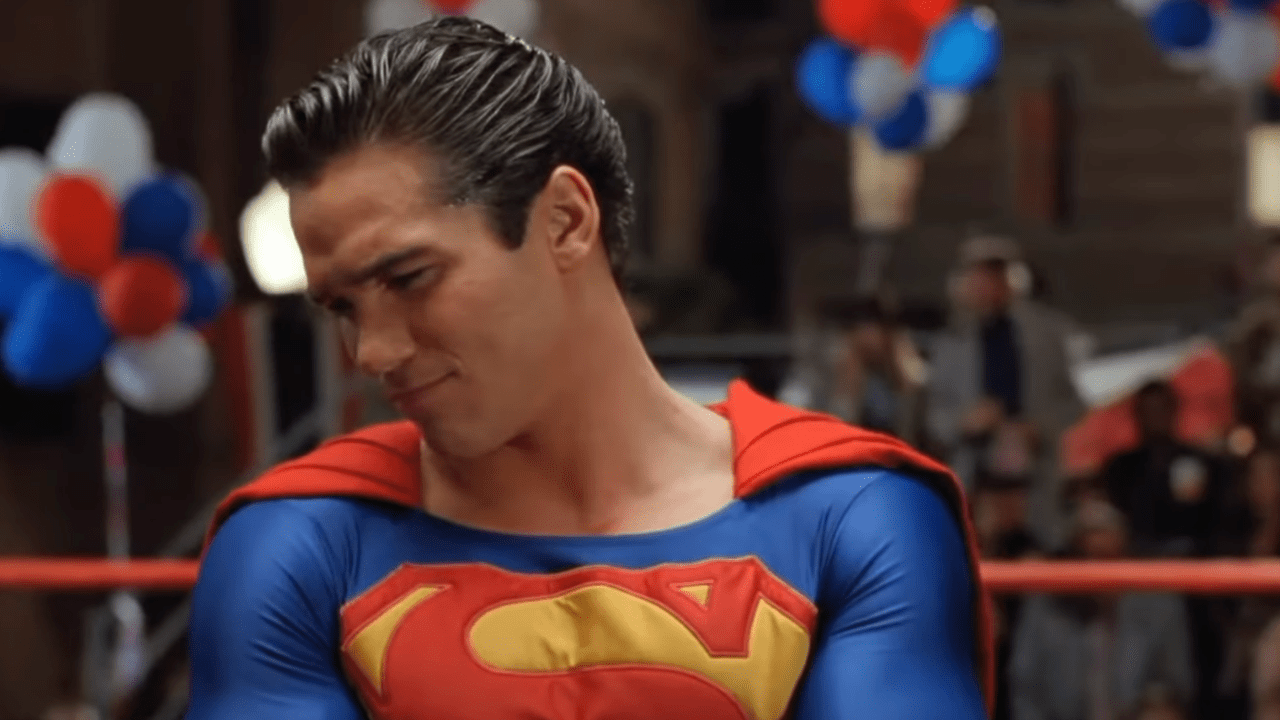
They’ve labeled Superman as a “gay icon” in an effort to inject politics into the narrative of yet another cherished American figure, according to Out Magazine.
A recent article in Out Magazine labels Superman as a significant representation or “icon” within the LGBTQ+ community, known as PRIDE. The authors assert that Superman’s attire, secretive nature, feelings of alienation, and physical appearance serve as subtle representations or “codes” symbolizing homosexuality.
Someone better tell Lois…

To clarify, Superman wasn’t intentionally designed as a representation of the LGBTQ+ community. Instead, he was brought to life in 1938 by Jewish immigrants Jerry Siegel and Joe Shuster, serving as an emblem of hope amidst the Great Depression. He embodies truth, justice, and yes, a strong connection to American values. His actions are driven not by personal identity but by his convictions. Superman represents enduring moral principles and personal accountability, rather than contemporary identity politics.
Oh, and he’s in love with a woman and has canonically been in love with her for almost 90 years.
The ‘Secret Identity’ Argument Falls Flat
The article suggests that Superman’s double identity as Clark Kent and Superman is symbolic of being in the closet. However, having secret identities is a common characteristic among superheroes like Batman and Spider-Man. This doesn’t automatically mean they are all gay. Instead, it signifies that they are human, imperfect, and captivating from a narrative perspective.

It’s not very thoughtful or accurate to assume that a character with a concealed background represents a specific identity simply because their life is hidden. At its best, this is a shallow interpretation; at its worst, it’s a misleading distortion of the original work.
Outsider ≠ Allegory
Absolutely, Superman is indeed an outsider. Born on another planet, he was raised among us humans, adopting our customs and values even though they aren’t his own by birth. This alien being, sent to Earth as a baby, has chosen to embrace humanity and safeguard us despite not being genetically part of our species. Interpreting this as an identity metaphor might oversimplify the narrative, as it goes beyond just identity; it’s about acceptance, assimilation, and commitment to values that aren’t inherently one’s own.
As a passionate moviegoer, I firmly believe that he symbolizes the quintessential American spirit. Although he didn’t start his journey here, his deep-rooted affection for and embodiment of all things admirable about America are undeniably authentic.

The focus here isn’t on exclusion; rather, it’s about ambition and ideals. Superman serves as an inspiration, symbolizing the aspirations we all share, not as a stand-in for every group’s experiences of feeling unheard or misinterpreted.
Let’s Talk About That Costume…
Costume consisting of leggings and a cloak is commonly known as superhero garb, dating back to its origin. Superman was never designed for a PRIDE event; instead, his purpose was to soar over towering structures with a single jump and deliver justice by confronting wickedness directly.

Simplifying his attire as merely an expression of personal style based on identity is both immature and disrespectful to the values embodied by that outfit – valor, integrity, and heritage.
Hypermasculinity Is Not Sexuality
The article surprisingly suggests that the masculine build of Superman contributes to his attraction among gay men, implying this characteristic is inherent in all fit individuals today. However, Superman’s flawless physique is simply a result of him being Superman himself, much like Hercules, Captain America, or any other action hero who embodies strength and valor.

Aspirations don’t always need to be viewed through the prism of identity. Not every concept requires a reinterpretation based on one’s identity or background.
The Ongoing Pattern of Rewriting Canon for Clout
Declaring Superman as a “gay icon” isn’t just an isolated event. It’s part of a broader trend where characters who were originally straight or non-sexual are being reimagined as gay, frequently without any support from the original source material. This is often done to create sensational headlines, garner online approval, or inject identity politics into areas where it may not have been intended before.
Superman is just the latest target. Here are just some of the others.
Captain America
Supporters have long advocated for a romantic relationship between Steve Rogers (Captain America) and Bucky Barnes within the Marvel Cinematic Universe, going as far as initiating the popular online movement #SteveRogersDeservesAGirlfriend or #GiveCaptainAmericaABoyfriend.

Even though my storyline revolves around my deep-seated affection for Peggy Carter, Marvel has consistently stayed true to this central theme throughout.
Elsa (Frozen)
Following the widespread popularity of “Let It Go“, some activists in the media began advocating that Elsa might be portrayed as gay due to her lack of a male romantic interest.
Despite Disney choosing not to provide her with a romantic partner, she was still widely recognized as a symbol of pride in numerous articles.
M3GAN
A robot-doll-turned-assassin, known for her dancing skills and witty remarks prior to executions, was unexpectedly labeled a “gay icon.” Publications such as Them and The Advocate published articles commending her “vibrant spirit,” seemingly implying that campy characteristics embody representation.

Before the latest installment, M3GAN took on the title of a “symbol for the LGBTQ+ community,” referring to it as her “normal state.” Unfortunately, the movie struggled significantly at the box office.
The Babadook
In an unexpected turn of events, a demon character from a horror movie on Netflix was inaccurately labeled as gay by the platform. However, this error sparked a significant online response that evolved into a full-fledged movement celebrating the character’s representation. The media joined the conversation, earnestly referring to “The Babadook” as a symbol of living with hidden identities or struggles.
Pennywise the Clown
Following the association of the clown from It with rainbow edits and drag quotes in memes, he was also bestowed as a symbol for the LGBTQ+ community – it seems that irony has taken over the traditional role of storytelling.
Instead of focusing on representation, it’s more about adapting existing characters. This involves changing them to align with current beliefs and ideas, often disregarding the original storyline, creator’s vision, or public response.
What’s Really Going On Here?
In simpler terms, this isn’t just about Superman. It’s about the continuous attempt by influential media activists to redefine popular characters from the past, making them symbols of contemporary ideologies. They do this by changing the narrative surrounding these characters and labeling anyone who disagrees as outdated or prejudiced, aiming to isolate the original fanbase.

People aren’t taking to the idea. It’s not necessary to transform Superman into a symbol of the LGBTQ+ community to prove his significance. He is significant as is. He’s already strong and influential. And he already embraces everyone – because he embodies values that exceed personal identity.
Truth. Justice. The American Way.
That’s what makes Superman iconic.

And no amount of revisionist headlines is going to change that.
Read More
- Grimguard Tactics tier list – Ranking the main classes
- 10 Most Anticipated Anime of 2025
- Gold Rate Forecast
- USD CNY PREDICTION
- Box Office: ‘Jurassic World Rebirth’ Stomping to $127M U.S. Bow, North of $250M Million Globally
- Silver Rate Forecast
- Mech Vs Aliens codes – Currently active promos (June 2025)
- Black Myth: Wukong minimum & recommended system requirements for PC
- “Golden” Moment: How ‘KPop Demon Hunters’ Created the Year’s Catchiest Soundtrack
- Castle Duels tier list – Best Legendary and Epic cards
2025-07-11 17:57